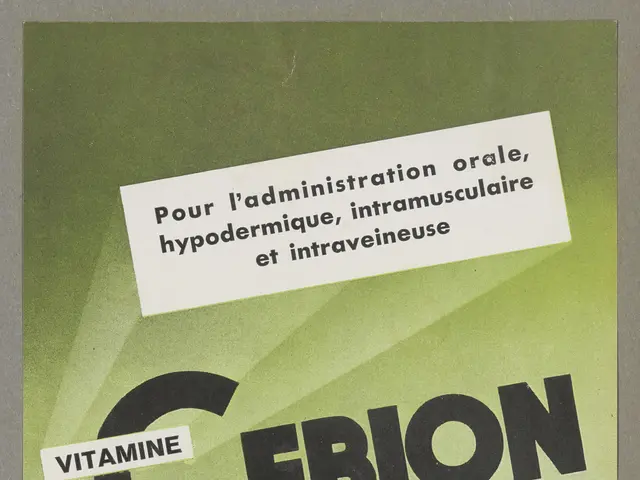Adolescent boy critically ill following contamination during holiday in Tihorets
The Summer Vacation Nightmare:
Last summer was a nightmare for the Lobanov family from Tikhoretsk. Instead of joy and rejuvenation, the season turned into a terrifying battle for survival. A gastrointestinal infection picked up during their holiday trip triggered a life- threatening genetic disease in their 14-year-old son, Misha. Now, his parents are frantically searching for funds for an expensive operation that could save Misha's life.
Misha's illness started in July 2024. On the last day of their vacation in Abkhazia, Misha and his sister fell ill, catching the same gastrointestinal infection. While his sister quickly recovered, Misha's condition worsened. After a brief hospital stay, he was sent home. However, within a few days, Misha started experiencing terrifying hallucinations. Doctors diagnosed him with acute encephalitis.
As Misha's condition deteriorated rapidly, he developed severe sepsis, respiratory failure, bilateral pneumonia, and multiple infections due to immune system suppression. The boy ended up in the ICU, where doctors struggled to save his life.
"After several days apart, I was finally allowed to see my son. I knew Misha was weak, but I had no idea how much - recalls Misha's mother, Irina Lobanova. - Misha was disoriented, didn't recognize me, and was screaming in fear. He had lost seven kilograms, couldn't speak clearly, eat, or walk. There were tubes everywhere. I was in shock. I was afraid to put into words what I saw and didn't know how to tell my husband."
The trials for the Lobanov family were far from over. Later, doctors suspected something more sinister was at play... After extensive examinations, Misha was diagnosed with a terrifying condition - adrenoleukodystrophy (ALD).
ALD is a rare hereditary disease caused by mutations in the ABCD1 gene, resulting in a deficiency in the adrenoleukodystrophy protein (ALDP). This deficiency leads to the accumulation of toxic fatty acids in the body, particularly affecting the adrenal glands, brain, and spinal cord. The disease progresses rapidly, causing irreversible damage to the nervous system and stripping away vital abilities like seeing, hearing, speaking, moving, and breathing independently.
After rehabilitation, Misha partially regained lost skills. He started speaking and walking again, eating and caring for himself independently. However, follow-up studies in January 2025 confirmed the worst fears - the disease is progressing, and the only way to save Misha is a bone marrow transplant.
Time is running out for Misha. The disease has advanced to a critical stage, and he needs help now.
"I understood from the doctors' comments that our case is unusual, despite the disease being extremely rare in itself. We sent documents to Italy, China, America, the United Arab Emirates, but most specialists are still studying our case," says Irina.
In the end, Israeli specialists took up Misha's case. They confirmed that a bone marrow transplant needs to be done as soon as possible. Currently, Misha is in an Israeli clinic with his mother, awaiting treatment. But the cost of this lifesaving procedure is tremendous - $255,000 (approximately 23,900,250 rubles at the current exchange rate). The parents urgently appeal to all compassionate people for help to give their son a chance at life. More than 70% of the required amount has been raised, but another five million rubles are still needed.
You can help Misha on the website of the charitable foundation "Alesha".
MEETING THE ENEMY:
ALD: A Nightmare Hereditary Disease
ALD is a rare hereditary disorder primarily affecting the adrenal glands, brain, and spinal cord. Caused by mutations in the ABCD1 gene, the condition leads to the accumulation of toxic fatty acids, resulting in neurological decline and, in severe cases, cerebral demyelination. Transmitted in an X-linked recessive pattern, the disease mainly affects males. Some patients experience severe cerebral involvement, while others have the more chronic form, adrenomyeloneuropathy (AMN)[1][3].
A bone marrow transplant, or hematopoietic stem cell transplantation (HSCT), can provide hope for some ALD patients, particularly those with cerebral involvement[5]. However, the procedure is costly, ranging from $500,000 to over $1 million in the United States, depending on factors like the specific procedure, the patient's health insurance coverage, and the location of the transplant facility.
Sources:
- Adrenoleukodystrophy (ALD) – NORD (rarediseases.org)
- Adrenoleukodystrophy – Mayo Clinic
- X-Linked Adrenoleukodystrophy – Genetics Home Reference (ghr.nlm.nih.gov)
- Adrenomyeloneuropathy – NORD (rarediseases.org)
- Hematopoietic Stem Cell Transplant (HSCT) for Adrenoleukodystrophy – National Institute of Neurological Disorders and Stroke (ninds.nih.gov)
In the fight against chronic diseases, science and medical advancements continue to provide hope. For families affected by adrenoleukodystrophy (ALD), a rare genetic disorder, the need for specialized treatment and expensive procedures like bone marrow transplants, often exceeding $255,000, poses a significant mental health challenge. Furthermore, addressing the physical and mental well-being of individuals with ALD, requiring fitness and exercise alongside mental health support, is integral to managing the disease and supporting overall health and wellness.







